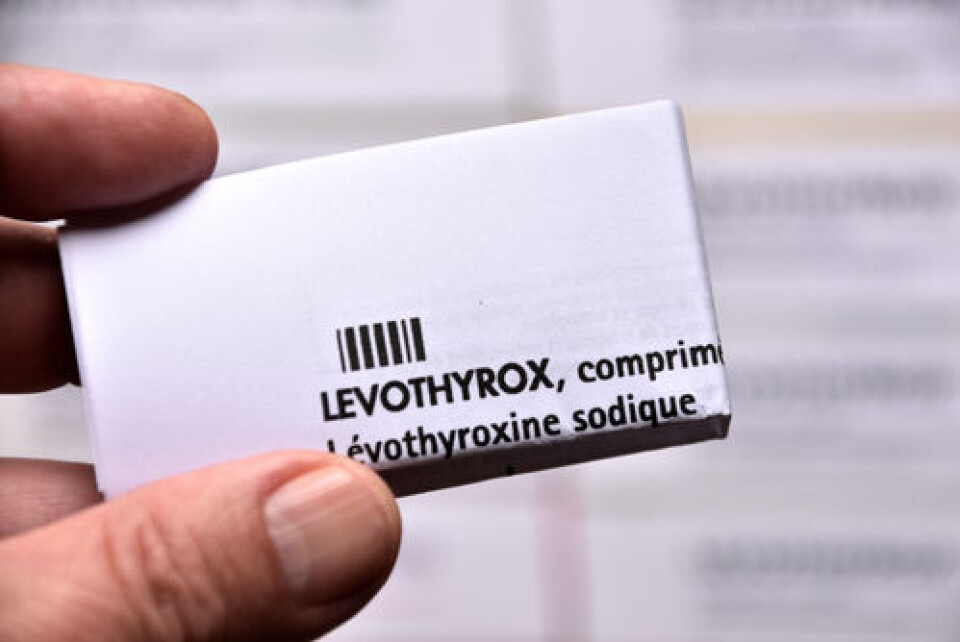-
‘No-licence’ cars: six rules to know in France in 2025
Double the number of these cars were registered in 2024 compared to 2019
-
Hiker stumbles across pack of seven wolves at Alpine ski resort
‘Unprecedented’ video captures wolves roaming on slopes
-
Deadlines for sending Christmas post from France to UK and other destinations
Deadlines for many international destinations are different
Levothyrox controversy in France: Merck indicted for ‘deception’
The French arm of the pharmaceutical giant said it is under investigation, in the latest twist in the long-running hypothyroidism drug saga

The French arm of the German pharmaceutical giant Merck been indicted for “aggravated deception” over its changes to the thyroid medication levothyrox in 2017, it has been announced.
In a statement, the group said: “The president of Merck was heard in court [and] the investigating judge has decided to put Merck under investigation for aggravated deception.”
In March, the group was also definitively condemned by the Court of Cassation (France’s highest civil court) to compensate more than 3 300 people who claimed they had been affected by the medication ‘recipe’ change.
So many people attended the Lyon hearing of the case in March that it was forced to open in a concert hall, as the city’s Palais de Justice proved too small to host the 4,113 plaintiffs.
The court then said that it found fault with Merck, and threw out the company’s previous 2020 appeal. This cost the company €3.3m in payouts.
Read more: French high court orders Merck to pay €3.3m to Levothyrox victims
In its ruling, the court said that "when the composition of a drug changes and this change in formula is not explicitly indicated in the package insert, the manufacturer and the operator may be accused of a failure to provide information", which may "cause moral harm".
The indictment is the latest twist in the levothyrox saga, which has been ongoing since 2017.
That year, increasing numbers of patients in France began to complain that their medication no longer appeared to be working as well as before.
Some patients reported a return of major hypothyroidism symptoms, including tiredness, brain fog, anxiety, feeling cold, dizziness, depression, muscle cramps, and unexpected weight gain.
A charge of manslaughter was even attached to the case after a woman died, allegedly from complications linked to the new levothryox formula.
Read more: French Levothyrox inquiry now includes manslaughter
It later emerged that Merck had changed the medication’s composition, but it repeatedly claimed that it did this due to ANSM (Agence Nationale de Sécurité du Médicament) guidelines, and that the medication was otherwise ‘bioequivalent’, meaning that its function or effectiveness should not be affected.
The changes had only been made to non-active ingredients, it said.
French medicine safety agency ANSM also confirmed the “good quality” of the drug, despite continued complaints by patients and the case brought by l’Association Française des Malades de la Thyroïde (French association of thyroid patients).
So many patients complained about the drug that the ‘old formula’ was made available in France until the end of 2021.
When the first complaints emerged in October 2017, then-French Health Minister Agnès Buzyn ordered 130,000 boxes of the old formula nationwide, half of which sold out within two days.
























